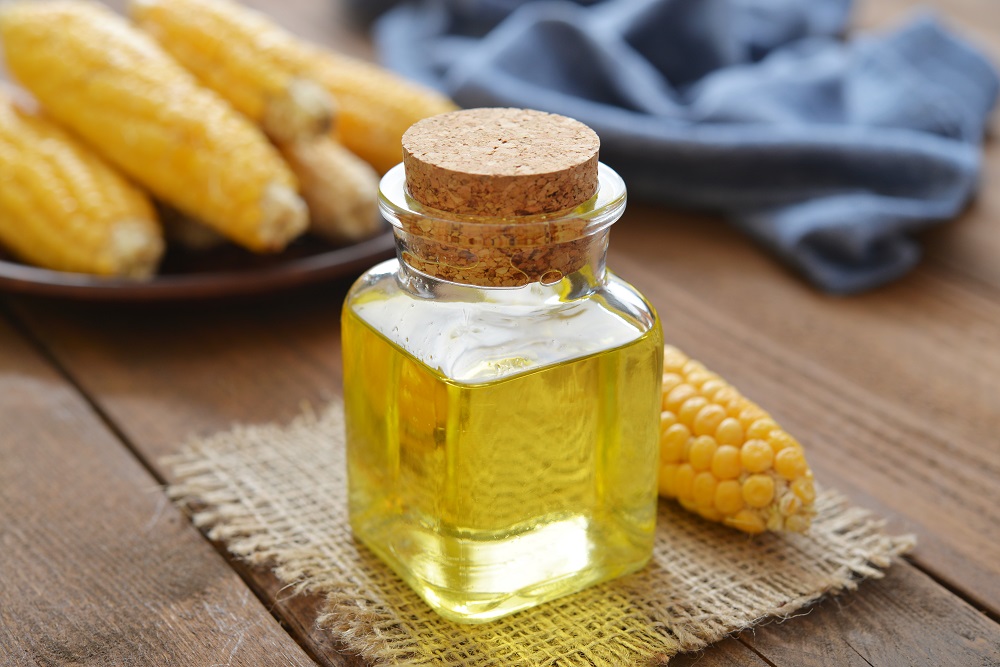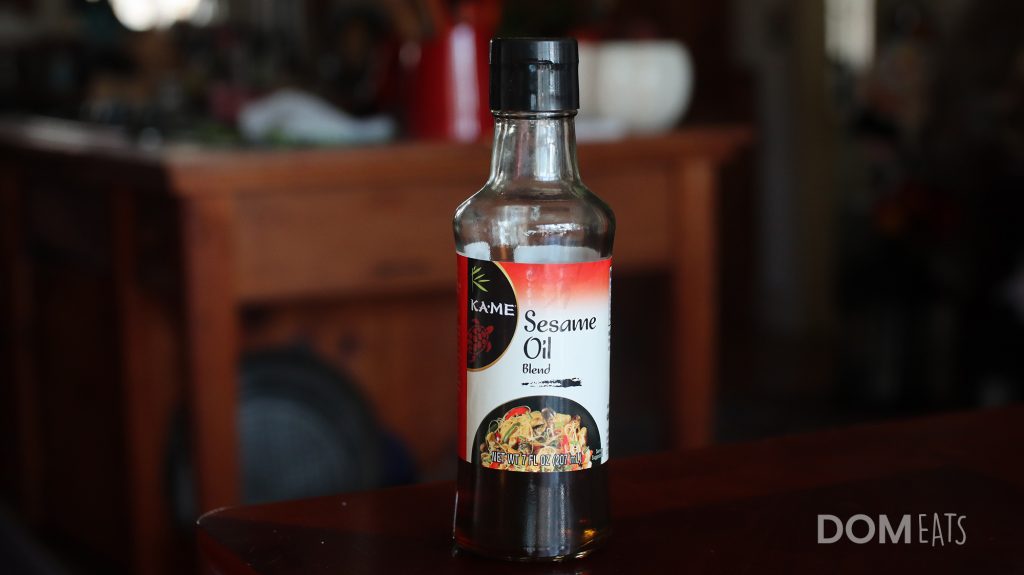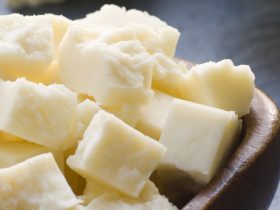Peanut oil, otherwise known as groundnut oil, is a multipurpose lipid product fittingly produced from peanuts, whether in their roasted form or raw. The particular nature of the peanuts, their age, and whether they have been roasted prior to being turned to oil will all affect the taste and appearance of the end product peanut oil.
However, due to allergies, dietary restrictions or simple personal preference, peanut oil may require substitution in several situations.
The best peanut oil substitutes for cooking are corn oil, canola oil, sunflower oil, peanut oil flavor substitutes, sesame oil, almond oil, and walnut oil extract.
Why Should Peanut Oil be Substituted?
Peanut oil is one of the most commonly substituted ingredients in modern culinary recipes owing to the relatively frequent cases of individuals with peanut allergies, making the incorporation of peanut oil into a meal or food product potentially hazardous if not lethal in certain situations.
As such, it is vitally important to always have an alternative to peanut oil in a kitchen or restaurant pantry in order to avoid situations such as these.

Apart from the potential allergic responses to peanut oil, certain individuals with other types of health conditions may wish for a healthier alternative to the nut oil, owing to the fact that peanut oil is usually consisting of saturated, monounsaturated and polyunsaturated types of fats, all of which are harmful to the health of said individuals.
Certain cases may even call for a substitution to peanut oil in the event that its high smoke point is not sufficient enough for the purposes of the recipe.
The majority of peanut oil substitutes will usually share a high lipid or fat compound content among its constituent molecular structures, with a suitably high enough smoke point that foods normally cooked with peanut oil will not burn if a substitute is used instead.
In What Cases Should Peanut Oil Not be Substituted?
Peanut oil should not be substituted in cases wherein no higher smoke point substitute is available despite the method of cooking possessing a maximum temperature of 232 °C or higher.
This is of vital importance, as heating up oil beyond its smoking point may trigger a kitchen fire or similar dangerous occurrences.
Other instances wherein it is best not to substitute peanut oil is if the individual is consuming it for its vitamin A and E content, of which is somewhat less common in other forms of oil, especially those that are not sourced from nuts.
Alternate Types of Peanut Oil
Perhaps the best way to substitute peanut oil without losing its primary characteristics is through substituting one particular kind of peanut oil with another, as each type of peanut oil may present varying attributes.
Refined Peanut Oil
Among the most commonly found types of peanut oil, refined peanut oil is the bleached and processed form of peanut oil with the majority of its other constituent compounds apart from the lipids removed either via mechanical separation or chemical dissolution.
Therefore, in cases wherein using peanut oil is the absolute last resort despite the consumer possessing peanut allergies, it is best to use refined peanut oil as it will likely contain far less allergens than other types of peanut oil.
Another benefit to the use of refined peanut oil is its relatively high smoke point, which is several degrees higher than other forms of peanut oil.
Roasted Peanut Oil
The primary form of peanut oil used as a flavoring agent in cuisines such as Chinese or Indian, roasted peanut oil possesses a complex and distinctly nutty flavor oftentimes compared to sesame oil or similar nut oils with particularly strong tastes.
Roasted peanut oil is best used as a topping or incorporated into the ingredients of a recipe instead of being used as a frying oil, both due to the fact that it possesses a relatively lower smoke point than other kinds of peanut oil as well as the cost of using roasted peanut oil in large volumes.
Peanut Oil Mixes and Blends
The best of both worlds in certain situations, peanut oil mixes incorporating various other oils can function in a variety of capacities that roasted or refined peanut oil cannot ordinarily act in.
The addition of other, stronger tasting oils to the peanut oil may allow it to be used as a flavoring oil in recipes, while the relatively higher smoke point of peanut oil will allow the mixture to retain its ability to be used as a frying oil as well.
Peanut Oil Substitutes for Cooking
In the event that the primary intended use for peanut oil prior to its substitution is simply to use it as a frying or cooking oil, several other types of oil may also be used, possessing a similar or higher smoking point even than refined peanut oil itself.
It is important to note, however, that the relative cost and flavor of these substitute oils may not be quite the same as peanut oil, especially considering the fact that the majority of oils with high smoke points are usually neutral flavored.
Corn Oil
Possessing one of the highest smoke points among edible oils marketed towards the majority of consumers, corn oil is an excellent substitute for peanut oil in such functions like deep frying and roasting, wherein it may withstand temperatures somewhat higher than peanut oil itself can.

The primary drawback to using corn oil as a cooking substitute for peanut oil is its significantly higher level of polyunsaturated fat and the fact that it is generally neutrally flavored, imparting none of the same taste notes as peanut oil.
This, however, is somewhat made up for by the relatively low costs of corn oil, which is considered one of the most inexpensive forms of cooking oil available in modern day grocery stores.
Canola Oil
Though canola oil may have an incrementally lower smoke point than that of peanut oil, the difference is generally negligible, being reserved to a difference of single digit degrees in most cases.
As such, canola oil may also act as a potential peanut oil substitute for the purposes of cooking, especially in instances wherein the consumer must have lower levels of saturated fat in their diet due to health reasons or similar conditions.
Additionally, canola oil is approximately 20% lower in caloric value when compared to similar volumes of peanut oil, making it a somewhat healthier choice, especially for individuals on a calorically restricted diet.
Sunflower Oil
Among one of the most ideal peanut oil substitute candidates for use in cooking and flavoring, sunflower oil boasts a near identical smoke point to peanut oil, with the difference being within one to two degrees respectively.
Additionally, sunflower oil is said to impart a similarly nutty yet mild flavor to any foods it is added to or otherwise is cooked in, replicating the delicate tastes that peanut oil may present in a recipe.
The primary downside to utilizing this excellent peanut oil substitute is its slightly higher cost, though this is considered somewhat negligible considering the significant volumes of vitamin E and K present within the sunflower oil in its pure form.
Peanut Oil Flavor Substitutes
Though usually used as a flavoring agent in its roasted form, peanut oil can be used in order to impart an ever so slightly sweet and mildly nutty taste to any dish it is added to or any ingredient that is cooked within said oil.
These flavors may be replicated in part by other oils with similar nut or seed related sources, of which may also possess a similar aroma, further allowing them to act as peanut oil substitutes.
Sesame Oil
Often commonly used in Chinese and Southeast Asian cuisine as a flavoring ingredient, sesame oil can present very similar tastes to that of peanut oil, with a light nuttiness and slightly cloying earthy aftertaste that pairs extremely well with more acidic and sharp ingredients.

It is important to remember, however, that certain varieties of sesame oil are not meant for frying, especially at high temperatures, and as such are better used for acting as a taste addition to recipes instead.
The best way to determine whether a particular type of sesame oil is safe for frying or other types of cooking is its color, with darker sesame oil being unsuitable for such environments.
Almond Oil
An excellent peanut oil substitute both as a flavoring ingredient and as a general purpose cooking oil, almond oil presents a soft earthy and nutty taste profile that is occasionally indistinguishable from roasted peanut oil.
The primary drawback to using this otherwise perfect peanut oil substitute is the relatively high cost of doing so, with almonds themselves already being considered quite pricey, making their processed oil form all the more expensive in larger volumes.
This is offset by the purported health benefits of using almond oil, not only in food but in a variety of other purposes unrelated to cooking, alongside the fact that almond oil imparts quite a few minerals and nutrients to its consumers.
Walnut Oil Extract
Much like almond oil, walnut oil is a distinctly nutty plant lipid extract with a relatively high smoke point, making it excellent for both flavoring and cooking, much like peanut oil itself.
Walnut oil’s distinctly intense flavor profile allows it to be used in very minute amounts as a simple topping or coating, imparting a richer and more extravagant version of peanut oil’s flavor to any dish it is added to.
However, just like almond oil, walnut oil extract or simply walnut oil is rather expensive in large volumes, both due to the sheer volume of walnuts needed to produce any amount of walnut oil as well as the difficulty in storing it, with high temperatures denaturing and altering it at a chemical level.
References
1. Unknown Author. (ND) “Sunflower oil, nutrients”. FoodData Central. USDA Agricultural Research Service.
2. Liu, Xiaojun; Jin, Qingzhe; Liu, Yuanfa; Huang, Jianhua; Wang, Xingguo; Mao, Wenyue; Wang, Shanshan (2011). “Changes in Volatile Compounds of Peanut Oil during the Roasting Process for Production of Aromatic Roasted Peanut Oil”. Journal of Food Science.
3. Theodore J. Weiss. (1983) “Food Oils and Their Uses” Ellis Horwood series in food science and technology AVI Publishing Company. Retrieved through Google Books Cooking Category. ISBN 087055 4204, 9780870 554209





Hi, I'm Dom
Dom Eats was started to help other people fall in love with food. While cooking can feel intimidating, it doesn't have to be.